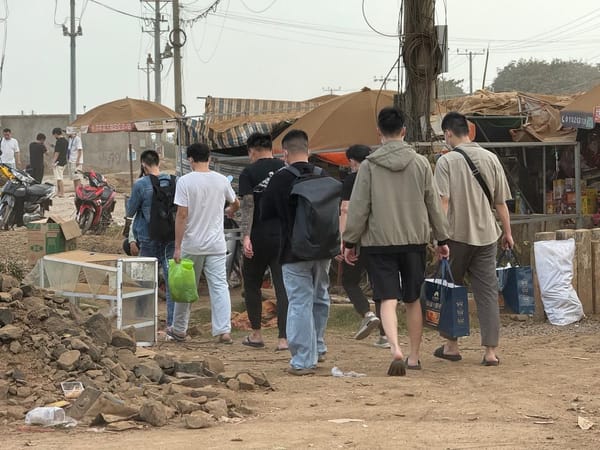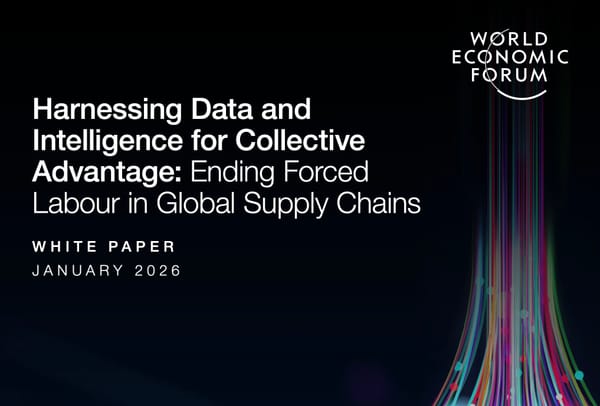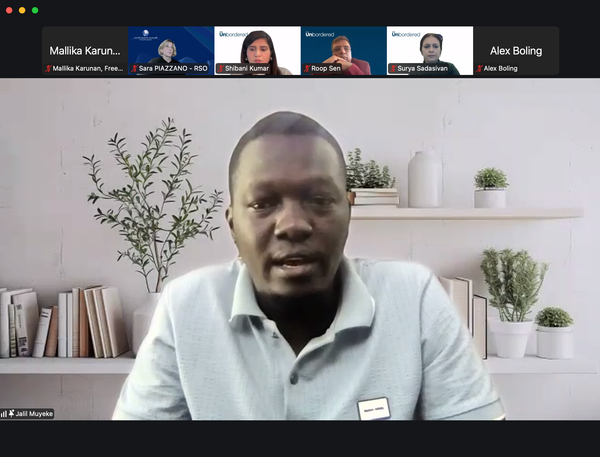CSOs convene to discuss the impact of funding cuts and shifting state priorities
The anti-trafficking sector faces both a lack of funding and increased restrictions, UN experts call for urgent action on forced criminality in scam compounds, and a report highlights forced labour in Turkmenistan’s cotton industry.

Anti-trafficking civil society groups from 24 countries came together last week to discuss the impact of funding cuts on anti-trafficking efforts in Europe, and the wider shift in governments’ approaches to migration and exploitation. The webinar, organized by La Strada International and Edinburgh Napier University, explored what recent reductions in anti-trafficking funding reveal about changing state priorities, the role of civil society in governance, and the stability of international commitments to prevent human trafficking.
Over the past two decades, global anti-trafficking work has relied on a mix of governmental, intergovernmental, and private funding. However, recent political developments, particularly in the United States, have contributed to significant changes in this funding landscape with many organizations and projects experiencing cuts. As a result, important survivor support services have been suspended, including emergency shelters, hotlines for reporting and victim identification, and legal assistance in trafficking cases, while community-based initiatives have also been affected. Despite these challenges, some efforts continue, largely sustained by individuals working on a voluntary basis while waiting for clearer prospects.
These funding reductions suggest a broader shift in how some governments are addressing issues related to migration, exploitation, and transnational crime. In addition to financial constraints, organizations report increased restrictions on information sharing, legal and administrative barriers to projects and, in some cases, the closure of established programs. New legislative proposals, such as taxes on philanthropic giving, have also raised concerns. These developments point to a changing relationship between governments and civil society – there is a risk that, by limiting support for non-governmental actors, states may be consolidating control over anti-trafficking discourse and policy, potentially moving away from approaches centered on victim protection.
While many donors have scaled back, some are attempting to adjust by aligning with new funding criteria, revising contract procedures, relocating operations, or modifying funding strategies. Currently, most available funding is directed to essential frontline services, but key questions remain regarding how limited resources should be used and how to build long-term resilience; while some advocate for prioritizing larger organizations that may be more stable, others emphasize the value of supporting diverse actors.
Speakers also discussed the impact on international organizations, including several United Nations agencies that play a role in counter-trafficking efforts – UNHCR, UNODC, UN Women, OHCHR, IOM, OSCE, and ILO have all experienced substantial reductions in their funding. Before the recent changes, the U.S. was the largest financial contributor to the UN, accounting for approximately 22 per cent of its core budget and providing significant support to specialized agencies. Following the funding freeze, however, some officials report that their agencies have lost up to 40 per cent of their operating budgets and, although limited information has been shared publicly, the effects are becoming visible through paused projects, reduced staffing, and travel restrictions.
The U.S. funding freeze has also influenced the broader funding environment, including shifts in EU priorities. This has added to existing tensions between governments and civil society and raises important questions about the future of international cooperation in the fight against human trafficking.
Looking ahead, discussions highlighted the need to identify sustainable paths forward for the anti-trafficking field. It is increasingly evident that reliance on funding from the U.S. is no longer a viable long-term strategy, and that greater responsibility and leadership will be needed from European governments. In the meantime, while some organizations are closing programs or reducing their scope, others are finding ways to adapt, for instance by crowdfunding, developing social enterprise models, and advocating for expanded support at the European level. Philanthropic institutions are also exploring new ways to respond to the evolving landscape.
While recent developments have exposed vulnerabilities in the sector’s financial foundation, they also offer the opportunity to rethink long-term strategies. A coordinated effort among European governments, civil society, and philanthropic actors will be essential to maintain progress in combating human trafficking and ensure that those affected continue to receive the support they need.
Here’s a roundup of other noteworthy news and initiatives:
The 34th session of the UNODC's Commission on Crime Prevention and Criminal Justice took place in Vienna last week, bringing together representatives from Member States, UN entities, and civil society. Among the outcomes was a new resolution marking the 25th anniversary of the Smuggling of Migrants Protocol, calling for stronger international cooperation and protection of migrants’ rights.
UN experts issued an urgent call last week for coordinated, human rights-based action to address large-scale trafficking and forced criminality in scam centers across Southeast Asia. They warned of severe abuses and inhumane conditions affecting hundreds of thousands of victims, and urged states to prioritize victim protection, accountability, and safe, voluntary return.
Nishta Mauree, a trafficking survivor and youth organizer at Praxis, has criticized the UK Government’s proposed immigration changes, calling the extension of the settlement period “a prison sentence.” The plan, outlined in Labour’s latest Immigration White Paper, would double the wait for permanent residency from five to ten years, raising concerns about prolonged insecurity for migrants, including trafficking survivors.
A new report from the Cotton Campaign and partners highlights ongoing state-imposed forced labour in Turkmenistan’s 2024 cotton harvest, despite limited reforms. The coalition urges the Turkmen Government to strengthen protections for workers, end retaliation against activists, and implement deeper structural changes to dismantle coercive labour practices.
The Anti-Trafficking Review has issued a call for papers for a special issue on care work, intimate labour, migration, and exploitation, inviting contributions that explore how these intersect with gendered violence, state policy, and systemic harm. The deadline for submissions is 1 December 2025, with the issue scheduled for publication in September 2026.
Equidem has released two publications on the structural challenges of platform work: “Realising Decent Work in the Platform Economy: Addressing Intermediated Platform Employment in Food Delivery and Data Work” outlines key strategies to ensure fair and dignified work in the growing platform economy, while “Scroll. Click. Suffer.: The Hidden Human Cost of Content Moderation and Data Labelling” looks at the exploitation behind digital labour.




